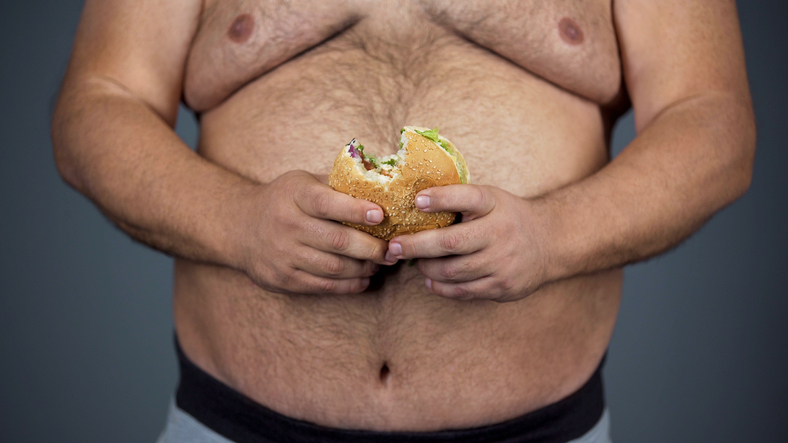Flatulence: What causes flatulence and how to get rid of it? + Symptoms

Flatulence, bloating, or abdominal bloating are problems stemming from the bowels due to excessive production of gas. The condition often occurs due to improper diet, food, or other organic causes, and even stress.
Most common symptoms
- Chest pain
- Stomach pain after a meal
- Abdominal Pain
- Flank Pain
- Lower Abdominal Pain
- Cramps in the abdomen
- Nausea
- Constipation
- Flatulence - bloating
- Bloating - flatulence
Characteristics
Abdominal bloating, flatulence, expelling gas, or meteorism is the result of increased intestinal gas in the human digestive system, i.e. the intestines or bowels. Flatulence, or expelling wind through the anus, is a natural event that causes social embarrassment.
Expelling gas is a socially embarrassing, yet natural event.
Intestinal gas may be produced for several main reasons.
1.
The first reason is swallowed environmental air and CO2 during the intake of food and liquids, such as carbonated drinks and sweetened beverages.
2.
The second natural mechanism of gas production is due to intestinal microorganisms, i.e. microflora, especially in the large intestine.
3.
The third cause is the formation of CO2 during the neutralisation of stomach acid.
The reason for the bloated abdomen is the increased production of intestinal gases or excessive air intake or insufficient expulsion of air. Intestinal gases can be expelled in two ways: through the mouth as eructation (burping) or through the rectum, i.e. passing gas, that produces the typical sound of what is commonly called a fart, i.e. the passage of gas through the rectum.
Pathological meteorism = passing wind 25 times or more per day for two weeks.
Gases are formed mainly in the large intestine as a product of fermentation and rotting of food residues. In addition to leaving the digestive tract through the mouth or rectum, gases are also partially absorbed in the intestine.
Intestinal gas consists of:
- nitrogen
- oxygen
- carbon dioxide
- hydrogen
- methane
What is normal flatulence?

The passage of gas through the rectum results in typical sounds, which is popularly referred to as passing gas or farting. The act is considered rude by society and people view it negatively despite the fact that the formation of gas and its escape is a natural physiological phenomenon.
An inflated abdomen is also the result of excessive gas retention, for example, in a situation where a person in society cannot pass wind. Like belching, passing wind can be controlled, but only until the pressure on the sphincter does not exceed its strength.
So, what is considered normal?
It is passing wind less than 25 times a day.
For men, the average number is 12 times a day.
For women, it is 7 times.
In sleep, approximately 100 ml of gas leaves per hour.
In addition to retention, flatulence can be a cause of functional disorders, but also as a result of stress.
Other physical, ie organic, diseases can also be the reason for the excessive accumulation of gases in the intestine. As a result, bloating can be described later in the article.
FAQ:Why does bloating occur?How to get rid of it?What will help alleviate strong to extreme flatulence?
Causes
Flatulence occurs at any age, even in newborns, young babies, and children. It happens in both sexes. The causes of bloating can be divided into several groups.
The reason may be a poor diet, the food itself, or a functional or organic disorder.

Poor diet involves excessive air swallowing while eating, or aerophagy. Another cause may be fast eating and overeating, or foods which are known to cause increased gas production, such as beans or cabbage.
A good example of a functional problem is poor motility of the stomach, intestines, or dysfunction of the rectum. This group also includes the increasingly common irritable bowel syndrome. There are organic reasons behind diseases, such as inflammation of the intestine, celiac disease, and even a tumour or obstruction of the intestine.
Table: the most common causes of meteorism
| Factor group | Cause |
| Diet |
|
| Food |
foods with a higher content of indigestible sugars, polysaccharidesand food like:
|
| Beverages |
|
| Microflora imbalance |
|
| Functional disorders |
|
| Organic cause |
|
| Other |
|
TIP: More information on celiac disease in this article.
Lots of gas and a bloated belly after eating?
After the microbial balance in the large intestine is disturbed, the diet is the most common reason for bloating. Due to their composition, some foods will cause higher gas production, for example compound sugars, i.e. oligosaccharides, polysaccharides. The problem also occurs when proteins and sugars are disproportionally combined.
Bacteria that break down proteins produce hydrogen sulfide, which has a characteristic smell. Sugar-decomposing microorganisms then produce intestinal gases that do not smell but produce them to a greater extent. These gases are methane and CO2.
The following may be the cause of bloating after a meal:
- eating too quickly, swallowing large pieces of food, air swallowing
- overeating
- legumes, in particular beans, lentils, peas, chickpeas
- cabbage vegetables such as kale, Savoy cabbage, cauliflower, broccoli
- melon, pepper, cucumber
- some types of cheese
- condensed milk
- sweet cheese and dairy products
- eggs
- onion, garlic, leek
- root vegetables such as radish, beetroot
- yeast
- beer
- wheat, bran, oats
- for some people, milk and dairy products
- spicy food
- prunes, raisins and other dried fruits
- carbonated, sparkling drinks
- drinking with a straw
- drinking in large gulps
- sweets, hard candies, lollipops
- chewing gum
- fatty foods
- fried food
- artificial sweeteners
Symptoms
Typical symptoms of bloating are a bloated belly and the sensation of having a balloon or a ball in the abdomen. There is excess gas production and gas retention in the digestive tract. It is expelled either through the mouth as burps, i.e. eructation, or through the anal opening as wind. The characteristic sound is created by the passage of air through the anus and its vibration.
Intestinal gas consists of 90% nitrogen and oxygen, and a smaller amount of carbon dioxide, methane and hydrogen.
In addition to the sensation of having a full stomach, there are also symptoms such as erratic dysfunction in bowel habits, which is also accompanied by characteristic noises, i.e. gurgling in the abdomen. Abdominal pain is also one of the symptoms of flatulence. The gas dilates the intestines, which causes pain.
Increased abdominal pain and abdominal cramps are also caused by gas retention. The intestine tries to move the gases further along, but the closed anus creates an obstacle. The same is true for intestinal obstruction or other obstruction in the intestine. The cause migfht be a tumour or constipation.
Bloating causes:
- a feeling of fullness
- abdominal discomfort, a vague feeling of unease in the abdomen
- a bloated belly
- pressure in the abdomen, as if there was a balloon in it
- belly feels hard
- abdominal pain caused by excess intestinal gas
- cramps in the abdomen, in the lower abdomen
- gurgling
- increased flatulence
- burping, especially in functional disorders in the higher parts of the digestive system
- loss of appetite
- constipation
- diarrhoea
Prolonged gas retention can lead to chronic indigestion.
Intense abdominal pain occurs when gas accumulates in the splenic or the colic flexures.

Diagnostics
Diagnosis of bloating is not a problem in most cases. Based on the medical history, the doctor determines the course of the disease, the clinical picture. Of course, bloating as such is not a separate disease, but is in most cases an associated symptom.
According to ICD-10, or the International Classification of Diseases, it is categorised under R14 as Flatulence and related conditions:
- abdominal distention (gas)
- bloating
- eructation (burping)
- gas pain
- tympanites (abdominal / intestinal)
- excluded: psychogenic aerophagy (F45.3)
During the diagnosis, the doctor focuses on finding the main cause of a bloated abdomen and flatulence. The goal is to determine eating habits, the type of food and fluids, but also how long the difficulties persist, whether it is stress-related, irritable bowel syndrome, or some other functional or organic disorder or disease.
Thus, differential diagnosis also includes blood sampling and laboratory tests. Also, screening methods, such as X-ray, ultrasound scanning, CT or computed tomography, or endoscopic examination methods, are used. Alternatively, an ERCP and a food intolerance test (lactose, gluten) are useful in establishing a diagnosis.
Note:
If the problem is long-term, the sufferer should be scheduled for an examination, especially if there is persistent abdominal pain, constipation, or diarrhea. Bleeding from the anus and blood in stool require urgent help.
Course
The course of flatulence is individual and depends on the underlying cause. If the problem starts 30 minutes after a meal, the problem is presumed to be located in the upper part of the digestive tract, for example a functional disorder of gastric motility or abnormalities in the gallbladder or pancreatic tracts.
Of course, if the reason is food (vegetables) which promotes the production of gases, the problems will appear throughout a longer period of time. It is similar in the case of food intolerance.
One should pay extra attention especially if bloating occurs after each meal and is excessive and constant. This may be a sign of an allergy to gluten (from bread) or lactose (from dairy products).
Women who are pregnant or before the period, for example, also experience frequent bloating. An inflated abdomen occurs at the beginning of pregnancy due to various changes in a woman's body. Later it occurs due to an enlarged fetus, uterus pushing against the abdominal organs and intestines.
Noteworthy information: Lower abdominal pain in pregnancy.
Similarly, newborns are especially prone to flatulence. Their digestive tract needs to get used to receiving breast milk. The same is true for babies, young children and especially boys, who are more prone to flatulence and abdominal cramps. Their digestive system needs to get used to solid food and milk. It should be noted that food intolerance may also occur during this period.
Painful bloating may also by caused by gas retention in the short term. It is associated with a feeling of fullness, abdominal discomfort, erratic dysfunction in bowel habits, followed by pain or cramps in the abdomen or underbelly. In most cases, the subsequent escape of wind will help and relieve the difficulties.
The sufferer should take care not to retain the gas for too long. This may lead to chronic digestive problems. However, sometimes medications are needed.
What helps alleviate bloating and strong to extreme flatulence?
Is there something that helps in case of a bloated belly? Is there something that helps prevent flatulence?
Yes, there are a few simple measures with positive and preventive effects. Sufferers do not always realise that there is something about the food they eat or the menu they choose their diet from.
Legumes cause increased production of intestinal gases, but they are irreplaceable and very important as sources of food. Therefore, they cannot be completely excluded from the diet.
Table: Things one can do to alleviate flatulence or bloating
| Advisable | Inadvisable |
| sufficient physical activity | sedentary lifestyle lack of movement will slow down bowel movements, i.e., intestinal peristalsis, gastric and intestinal motility |
| eat slowly eat small bites chew your food well | eating and drinking too fast excessive swallowing of air, or aerophagia stress eating |
|
smaller portions 5x during the day | overeating |
| do not drink through a straw or out of a can | carbonated beverages |
reduce foods that cause bloating
| beer |
| strict adherence to diet in case of food intolerance and allergy | žuvačky pomôžu zubom proti zubnému kazu, avšak, zvyšujú riziko nadúvania |
food supplements
| lollipops, hard candies and other sweets |
| Apple vinegar | fruit sugars, i.e. fructose, can cause one's stomach to swell |
| a food diary will help keep track of and plan upcoming meals |
for some, milk and dairy products or pastry and gluten |
| drinking enough water | watch out for fried and greasy foods |
There are herbs and natural products that will help:

- caraway
- fennel
- marjoram
- rosemary
- sage
- basil
- peppermint
- lemon balm
- dill
- anise
- sweet flag
- coriander
What is the right way to eat legumes?
Some legumes, such as red kidney beans or chickpeas, should be soaked in water before cooking for at least for 6-8 hours. The water should cover the legumes and be at a level about 3 cm higher. The liquid must then be poured out and must not be used for cooking. The legumes are then boiled in clean water for about 1-2 hours. Smaller legumes can be soaked for 4 hours and cooked for at least 40 minutes.
Peeled peas or peeled lentils do not need to be soaked before cooking. Cooking for 30-45 minutes is enough. Canned legumes must be rinsed with clean water.
Legumes have an irreplaceable role in human and animal nutrition. They are also important in food industry, starch production, and fat industry. They contain the necessary proteins, fats, and fiber. They contain vitamins from the vitamin-B-complex, minerals such as potassium, calcium, phosphorus. Soy is also a legume that contains lecithin which lowers blood cholesterol.
Legumes and our health in general:
- low fat content
- they contain mainly unsaturated fatty acids and Omega 3
- contain essential amino acids
- high fibre content
- support the immune system
- suitable energy source
- contain the vitamin-B-complex
- most vitamins are in the skin of legumes
- they contain minerals such as calcium, magnesium, potassium, zinc or phosphorus and iron
- support brain functions
- have a low glycemic index
Noteworthy information: You can also read about the glycemic index in the article Diet in diabetes - recommended, not recommended food and food to avoid.
How it is treated: Flatulence
Treating bloating: medication, probiotics and fibre + plenty of exercise
Show moreHow to get rid of bloating
Flatulence is treated by
Other names
Interesting resources










